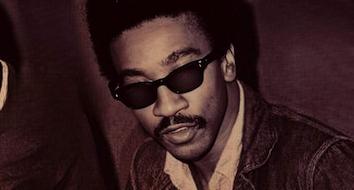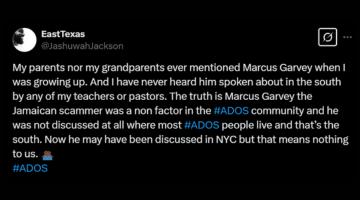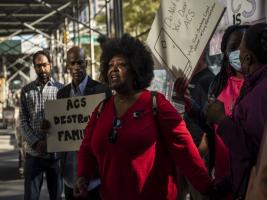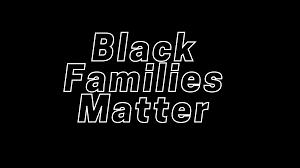“Reflections on Parenting and Revolutionary Struggle” is a space for parent-organizers to share their experiences and struggles with parenting. How do we parent in a way that reflects our revolutionary ideals? How can we impart the commitment to liberation struggles to our kids and give them (and ourselves) the tools to cope with the capitalist, anti-Black, and imperialist society in which we live? The feature will also include interviews with people who do not have biological or formally adopted children of their own but who serve as some of the primary caretakers, mentors, and spiritual guides for kids in their communities.
Roberto Sirvent: What does it mean to be a parent engaged in revolutionary struggle? How did becoming a parent change your political perspective? What are some of the challenges you’ve faced along the way?
Erica Caines: As a poor working-class Black mother and organizer, I’m not disillusioned by the challenges and realities faced, from managing time and finances to coping with loneliness and the pressures of being a primary earner. When I reflect on “parenting for liberation,” I think about the deliberate ways I've raised my son. In many ways, we have grown together in these movement spaces. His birth coincided with a tumultuous summer marked by the Black Lives Matter movement following tragic events like the deaths of John Crawford in Ohio, Eric Garner in New York, and Mike Brown in Ferguson. In fact, this period of my own growing consciousness amidst the systemic injustices and the state’s militarized responses led me to name him after Bob Marley's song that I played on repeat, “Zion Train,” a piece of heaven in the midst of Babylon. From the moment he entered this world, I've been deeply engaged in organizing efforts. Six out of his ten years of life have been intertwined with my work in my organization work with the Black Alliance for Peace, which has been instrumental in reshaping the anti-war left's politics over the past seven years. I also founded Liberation Through Reading when he was just three years old. Much of this liberation work is a core part of his upbringing. He, as well as my commitment to my organization, has truly taught me things like discipline, patience, when to be stern, how to be flexible. Admittedly, however, I grapple with a sense of guilt—balancing my roles as a mother and a very active organizer. I try to take as many meetings during his school hours as possible, which oftentimes leaves me overbooked. His weekends are interrupted by town hall events or teach-ins or more meetings. I travel out of the country often so I’m away from home, which he doesn’t hesitate to point out. I think often of the ways the children of revolutionaries look back at their childhoods in the movement with not the best memories and I struggle with that. It’s important for me to demonstrate to my son the importance of fighting for justice and liberation while nurturing a loving and supportive family environment, but finding that balance is an ongoing struggle.
What have you learned from your kids (or kids in general) about liberation? Is there a story about your kids you want to share?
One of the things both organizing and parenting have taught me, and probably because they both coincide, is the development of patience. I recently had a good laugh with comrades about my son and his “lack of tact”, if you will. I am mommy 24/7 whether I am at home or rallying students or speaking for Palestine or teaching about AFRICOM and what this means is my child is liable to walk up to me while I’m on the mic and ask for WiFi for his iPad. It’s moments like that where an innate response might be irritation or frustration, but he’s always done this. There’s a video of my comrade and my son running in a circle around me because she was trying to prevent him from interrupting me— this first time I was ever asked to read a statement for Human Rights Day in 2019. At this point, I’m like, “just let him interrupt”. It’s oftentimes a lot faster if you do. He stood next to me, recently, while I gave a speech for Land Day at Baltimore’s City Hall and then marched with me throughout the city. So he is getting better. But so am I. I think allowing him those moments and him witnessing how people engage these spaces helps him figure things out on his own.
And I see this replicated in how I show up in my organization. Sometimes not everything needs to be struggled.
There are many stories I could share about things my son says in passing that blow my mind. But one recent conversation, in particular, really floored me. Casually speaking, I asked him what he wanted to be when he grew up. He replied, “a good person.” I don’t know what I expected him to say, but I was intrigued by the response so I followed up with, “How do you plan to achieve that? What does being a good person mean to you?” He responded with such passion and determination. He said, “first, I'm going to ‘smash Zionism’ and Free Mumia”. These are the rallying calls often heard at the protests I bring him to. It makes me think of something my comrade says right before he encourages the crowd to chant “smash Zionism”, that if something is said seven times in a row, it sticks with you. It struck me then, this is the outcome of all those times I took him with me to rallies, actions, and teach-ins. He absorbs it all, even when I think he is not paying attention because that iPad goes everywhere.
He is currently enrolled in the Mass Emphasis Children’s History and Theater Company led by Obi Egbuna Jr., where he weekly identifies all African countries by their flags, discusses figures like Kwame Nkrumah and Paul Robeson, and takes part in plays centered on these historical figures. His understanding of being an “African” is solidified and affirmed there. He knows he lives in America but is an African. He often tells me, “Mommy, we're really into Africa,” pointing to our shared interest as something special just between us. Like the book we used to read, “Jonathan and His Mom”. These are those reassuring moments that keep me moving forward.
How do you navigate the various tensions and learning obstacles that arise when your child’s school is primarily committed to teaching compliance, conformity, and subservience to the state?
He is enrolled in public school, which presents its own set of challenges. For example, during ‘community helpers’ week, the curriculum often includes presentations about police officers. Similarly, on Thanksgiving and during the pledge of allegiance, there are moments of conflicting messages that I navigate daily. While some advocate for homeschooling or African-centered schools as alternatives, I believe that immersing my child in organizing has given him a unique perspective. We also read books together like the Black Panther Party graphic novel, which I am actually glad we did read together because he had a lot of questions, and I was forced to explain things to a child, like racism, state-sanctioned deaths, and the function of policing, in ways that made sense, but also held a particular political line. As of now, this exposure to an African-centered view of the world hasn't led to antagonism toward his teachers or disruptions in classrooms. He seems to only want to debate me.
For instance, one example of this perspective is how he interprets shows like PAW Patrol. There are jokes on the internet about “all cops are bad,” including PAW Patrol, a children’s program about a group of six rescue dogs, led by a tech-savvy boy. One could describe the existence of the show, just like “community helpers week” in schools, is copaganda. Copaganda can be defined as efforts to shape public opinion about police that counter criticisms of police and policing and how it functions within this empire. Law and Order: Special Victims Unit, is a prominent example of this. My child has developed a thoughtful argument about not applying real-world police context to fictional characters. Reminding me of what we’ve read and discussed from the Black Panther Party graphic novel, he noted that the PAW Patrol doesn’t kill people. This made me pause and reflect. This is loosely my documented argument on how we analyze concepts like “all states are bad” without considering their material context. I found myself admiring his critical thinking skills, even if it momentarily challenged my own views. I thought to myself, “wait a minute, is this dialectics?” So while I may have temporality tabled that discussion, I have not conceded to allowing Chase, the cop dog from PAW Patrol, in our home.
What does a revolutionary political education look like for – and with – children?
Revolutionary political education for African children is paramount in shaping critical thinkers who understand and challenge systems of oppression. I think most people dedicated to this work of popular and political education look to Paulo Freire’s Pedagogy of the Oppressed as a prime example of this transformative approach to education. Freire, the renowned Brazilian educator, emphasized the connection between education and liberation, highlighting that true humanization requires reflection and action. He argued that oppression diminishes our humanity, and only by engaging in critical dialogue and transformative action can individuals reclaim their full humanity. Freire's emphasis on dialogue, critical consciousness, and praxis (the combination of reflection and action) underscores the importance of revolutionary political education for African children. It encourages them to question existing power dynamics, analyze the root causes of social issues, and envision and build a more just society.
I truly think there should be different ways to engage children and adults in revolutionary political education. I mentioned the Saturday School that my son attends where he learns about African countries, and just sitting in that class with him virtually, I’ve also learned. I think when we think about political education, in general, and revolutionary political education, more generally, there is this idea that heads are in books in silence and it is serious business. And it is serious business, but it is also interactive, it is engaging, it can look like book clubs, a screening, or a discussion on something heard on the news, but however one conducts P.E., the fundamental question should always be, what is the objective? Are we trying to make our children aware or are we trying to make them conscious? Children, like many of us, are aware of our material conditions, but how many of us are conscious of why?
In what ways can parenting be “liberated” from the nuclear family model and instead be centered on more creative communities of care?
Parenting liberated from the nuclear family model must emphasize the importance of creative communities of care and support, moving away from traditional notions of family dictated by societal norms.
I think of Cuba’s new Family Code as a great example of recognizing and accounting for the existence of non-traditional families of all kinds. This shift is essential, especially considering how colonized communities in the U.S. are impacted by issues like the War on Drugs—forced out of attempts to conform to the white picket fence model aspirations. There are complexities of modern family dynamics that foster inclusivity and support for all individuals involved in caregiving and parenting roles. We can think of German philosopher Friedrich Engels' perspective on capitalism's role in shaping what we understand as the nuclear family structure, which sheds light on the ideological and economic functions at play. The emergence of the nuclear family was tied to capitalist interests, allowing the bourgeoisie to pass down private property and maintain their economic power.
Parenting liberated from this model should challenge these capitalist structures and create spaces where families can thrive outside of traditional constraints. I have a lot going on, yet I am constantly thinking about what else could be done. As a mother who organizes and faces particular struggles, I am consistently discussing the development of a space for mothers like me, if only to have a place to vent. This includes suggesting outings that are not for organizing but solely for the children, and fostering relationships with the children of parents we organize with so that when we are busy with organizing, the children know who they can turn to, rely on, and stay close to. Since many of us have children, we should provide childcare at every event. This exemplifies the community care model of mutual comradeship that I try to prioritize in my organization, which I hope can be a model for outside of the organization. Where we begin to recognize these children as collectively ours.
What are some support structures you have used in parenting? What are some resources (books, movies, etc.) you would recommend for parents committed to liberation?
My mother has been a significant support system, and while there are things she may not fully understand, she recognizes the efforts I make and tries to accommodate me, making things smoother. For instance, she picks him up from the bus stop when I'm stuck in traffic after a rally or watches him for extended periods while I'm on a delegation. I am fully aware that I am luckier than most to have this option, despite its limitations. As I mentioned earlier, I am considering creating a space for mothers like myself, not just for venting sessions (though they are much needed), but to develop a network of us to build relationships and realize that our experiences are not isolated. I am also pondering the potential of this space to go beyond networking and become a platform for political education. It's not that people are unaware; it's that they are not conscious. It is consciousness that drives reaction. The more I learn and understand the reasons behind my circumstances, the more committed I am to organizing against the forces that keep me there.
As a parent, I am unsure what drives my commitment to liberation beyond a fierce desire to protect my child. I want to contribute to building a world where he and other African children can experience freedom.
Erica Caines is the field operations and membership coordinator of the Black Alliance for Peace, serving as the Co-Coordinator of The Black Alliance for Peace Haiti/Americas Team and BAP-Baltimore Citywide Alliance collective coordinating body. Erica is a member of the Black working-class-centered Ujima People’s Progress Party in Maryland and founder of Liberation Through Reading. Erica is the Co-Editor of the Revolutionary African blog, Hood Communist.
Roberto Sirvent is Editor of the Black Agenda Report Book Forum.















